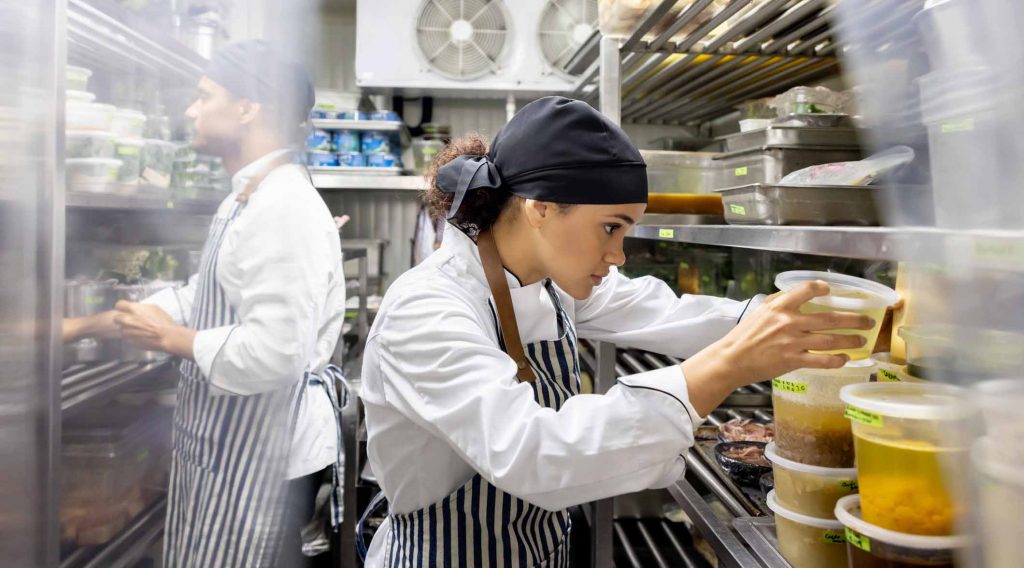
Few would disagree that 2019 was the year of the vegan and end-of-year surveys pointed to a real boost for vegan diets. Consider delivery firm Deliveroo reporting a massive 330% increase in vegan orders in the past two years, which was reflected in a growing number of vegan operators available on the platform.
However, this may not point to a trend for more genuinely vegan diners. The more accurate description, said Deliveroo, would be vegan-ish as customers focus on maintaining a more balanced diet, reducing certain elements without making wholesale changes.
Chris Stern FCSI of Stern Consultants in the UK recognises this next level for vegetarian and vegan food. “No longer featured at the bottom of the menu, it’s central now to every menu and we are also seeing an increasing number of vegetarian/vegan only outlets,” he says.
This shift in the dining public’s preferences is likely closely aligned with an increased general awareness of sustainability and the impact our food choices have on the world around us, which in turn has turned many chefs to hyperlocal sourcing.
Another trend that is certain to solidify in 2020 is experience dining, which goes hand in hand with requirement for restaurants to be Instagram friendly. New generations of diners expect more than just delicious food and excellent service – themed dinners and sensory dining with bold visual elements will continue to rise.
Continuing trends
Stern predicts that we will see a continuation of some of the trends that started in 2019, including more hand-held casual dining. “The knife and fork is dying fast in high-volume dining – though high-end dining will be there for a long time to come. International cuisine using authentic, delicious and fresh ingredients is central,” he says.
He also believes that CSR will continue to feature heavily on the agenda of foodservice professionals everywhere. It’s not just about waste and single-use plastics. “It is also about food provenance and minimisation of meat,” he says.
“It often goes hand in hand with social enterprise and wellness not only to reflect a better way of eating but also to polish clients’ CSR credentials in the food at work market.”
From the foodservice consultant’s perspective, says Stern, the focus has changed in this last year – he sees his role as being more influential than it has been in the past. “We need to ensure caterers are given the opportunity to reflect the trends we are identifying and indeed, if they are not buying into them, to lead them or even to swap them out for another more energetic caterer if the service isn’t as dynamic as it could and should be,” he says.
Looking to the year ahead, Stern predicts challenges will continue to come thick and fast. “Boringly, Brexit-driven volatility in food costs and accessing foodstuffs is one. I don’t actually think there will be major problems, but advantage will be taken by some to profiteer with Brexit as an excuse, so caterers need strong and effective supplier relationships,” he says.
“Beyond that, delivering to the trends we have identified is obviously the other big challenge and some will do it better than others – ersatz versions aren’t on and some caterers will struggle to deliver authentic initiatives.”
Public sector
For consultants working in the cost sector, there are plenty of opportunities too, says Martin Lindstaf FCSI of Cedervall arkitekter in Sweden.
“I hope and believe that 2020 will be a year of impact for collaboration between various taxfunded foodservice areas,” he says. “School meals integrated into the school’s educational activities, meals for the elderly are coordinated with student housing and daily activities for people with disabilities are such examples.”
He adds that there is good potential for increased profits and quality through such collaborations. “I also believe that the implementation of the school meal in education in the longer term will lead to better public health and more sustainable purchasing behaviour for food and meals by raising the knowledge of the future consumer,” he says.
This need for increased collaboration requires different professional groups to collaborate and work towards a common goal. “We consultants have an important role in both creating an image of, and the implementation of this goal,” says Lindstaf. “Constantly increasing building costs have in recent years resulted in smaller and smaller areas for the public meal facilities – it will be a big challenge for us consultants to secure the necessary functions. The dining room and dining areas become an area for learning and education, which means new requirements for design.”
As for the biggest challenge facing the wider foodservice industry in 2020 he echoes other consultants across the world: “Creating attractive, sustainable and economical solutions that meet the common goals above.”
Tina Nielsen




